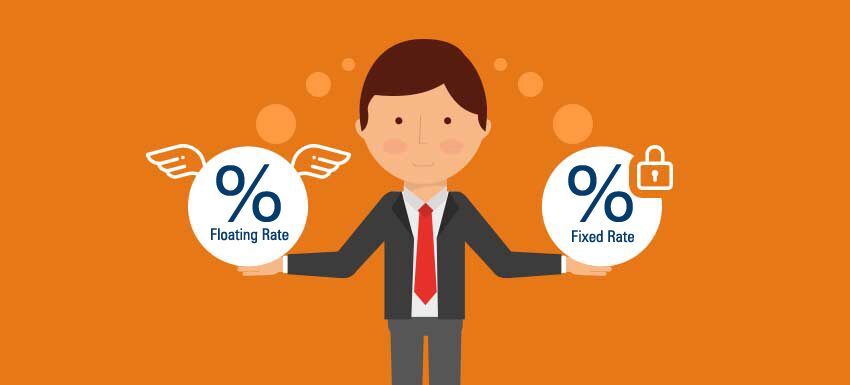When you take a personal loan, there are a lot of aspects that you need to consider before applying, such as the loan provider’s reputation, the loan term and the need for collateral. Out of these, the most crucial factor in the decision-making process remains personal loan interest rates as that determines the final amount that needs to be paid. There are two types of interest rates, and each of these offer some benefits and drawbacks.
How many types of personal loan interest rates are there?
- Fixed interest rate
- Floating interest rate
| Points of difference |
Fixed interest rate |
Floating interest rate |
| Meaning |
If you opt for a fixed interest rate for your personal loan, you will be charged the same interest for the entire duration of the loan. You can use a personal loan EMI calculator to ascertain the repayment amount as per the fixed interest rate, your loan amount, and tenure. |
If you opt for a floating interest rate for your personal loan, you will be charged as per the prevailing repo rate set by the Reserve Bank of India. |
| Volatility |
Fixed interest rates remain unaffected by the market. |
Floating interest rates are impacted by the performance of the market. |
| Equated monthly installments (EMIs) |
The EMIs are fixed every month and remain constant throughout the term. |
The EMIs can change as per the prevailing rate of interest. |
| Risk |
The risk involved is low, as you know exactly how much you will pay. |
The risk component is high as the rate can fluctuate over time. |
| Suitability |
This is suitable for a short-term personal loan ranging from 3 years to 10 years. |
This can be suitable for a longer term that extends up to 30 years. |
| Security |
Fixed rates can offer more security and let you plan your budget and repayment schedule in advance. |
Due to their unpredictable nature, floating rates may not always provide you with security. It can also be hard to plan your finances in advance as the rate can change at any time. |
|
Which is a better option between the two?
What is the verdict?
Long term: Since there are no revisions, the fixed interest rate can be higher in some cases, especially if the loan tenure is a long one. This way, you may end up paying more interest. Choosing a floating rate of interest can prove to be more economical as there are regular revisions that alter the overall interest incurred on the loan.
Short term: In the case of a short-term personal loan, the fixed interest rate may be more beneficial as there may not be enough time for floating rate revisions to alter your repayment.
Conclusion
Now that you have made up your mind, you can go ahead and apply for a personal loan with attractive personal loan interest rates to suit your requirements!
